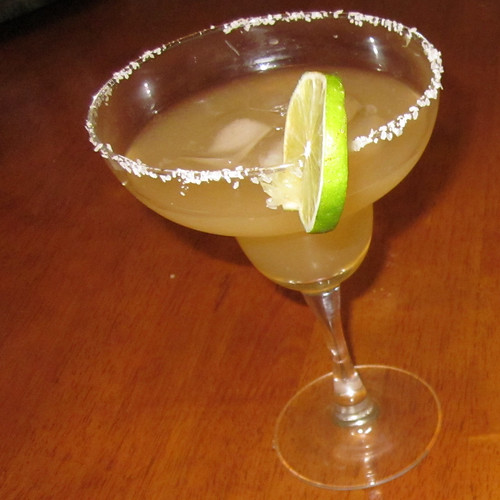Although I've come up with interesting variations, like a pineapple-guava margarita, the classic eluded me. So I tried looking online for an alternative to the book I had so far been using, and came across a simple recipe that used tequila, cointreau, and lime juice in a 3:1:2 ratio.
It didn't work.
So with my wife's far superior palate as final arbiter, I heavily modified the above recipe to come up with a margarita that has all the flavour I expect: Sweet, but not cloying, with ever-so-slightly dominant citrus notes, and a finishing jab wearing padded gloves.
The right tasty result:
I call it the Social Margarita, because the quantities are intended to yield two servings for sharing.
You will need:
- two margarita glasses
- cocktail shaker
- ice
- salt (optional)
- lime wedges or slice
- 3.75 oz of tequila
- 1.5 oz of grand marnier
- 1 oz of BOLS triple sec
- 2 oz of fresh lime juice (or juice that is not from concentrate)
Wet the rims of the glasses with the lime slices, than salt as desired. Pour in the mix with the ice, and garnish with a wedge or slice of lime. Finally, enjoy.
Give it a try and let me know how it turns for you. Just remember: margarita recipes are very personal indeed. If this one doesn't do the trick for you, experiment and share your results with me!
Salud!
Give it a try and let me know how it turns for you. Just remember: margarita recipes are very personal indeed. If this one doesn't do the trick for you, experiment and share your results with me!
Salud!

